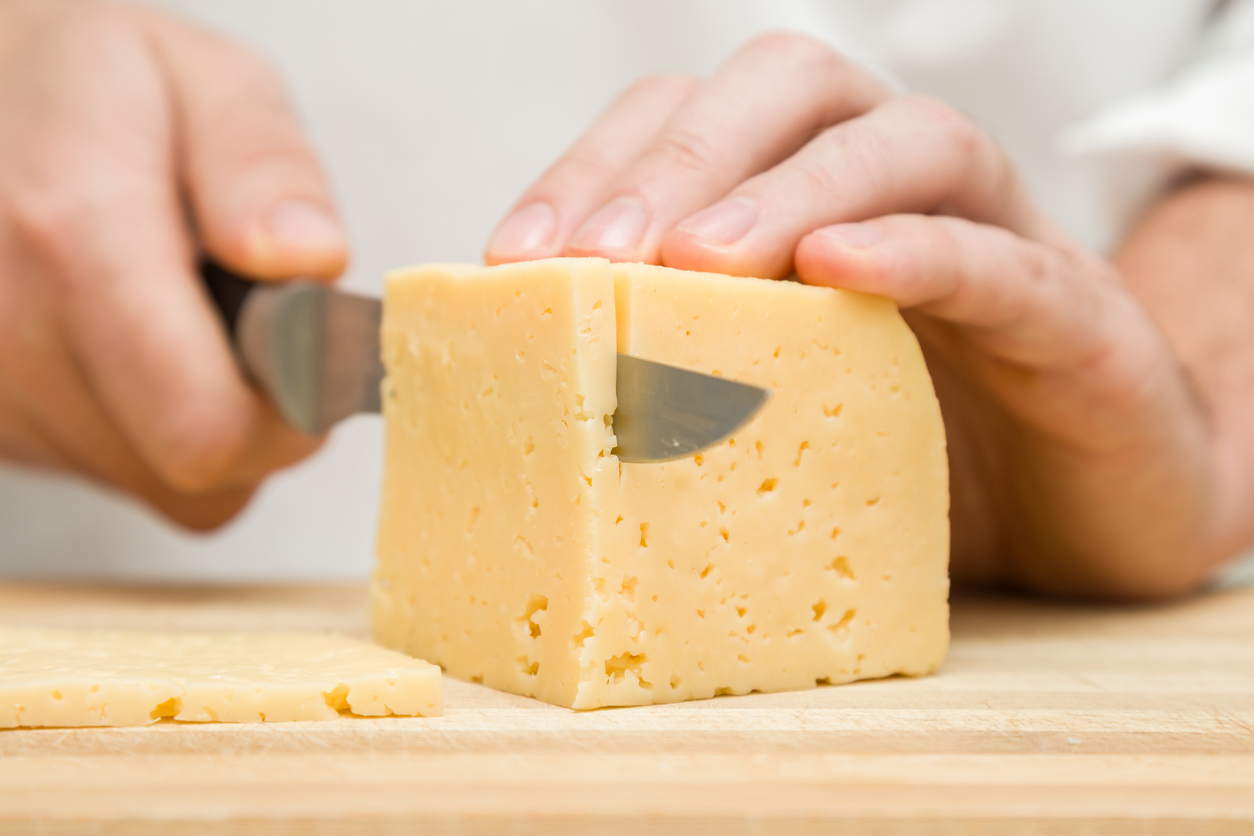How Trump's trade war is hurting America's cheesemakers


A free daily email with the biggest news stories of the day – and the best features from TheWeek.com
You are now subscribed
Your newsletter sign-up was successful
Working in big cheese is really starting to stink.
American cheese exports are down drastically this year, largely thanks to Mexico and China issuing dairy tariffs in response to President Trump's trade war. Now, there's a 1.4 billion pound pileup in cold storage facilities across the country as cheddar prices continue to tank, The Wall Street Journal reports.
U.S. cheesemakers are currently sitting on the largest stockpile in recorded history. But it's not because Americans aren't tolerating the lactose, seeing as they "ate a record 37 pounds of natural cheese per capita last year," the Journal says. It's because cheesemakers increased production to meet that higher demand, only to see it sliced amid Trump's trade war. Mexico's intake of American cheese went down by more than 10 percent in the past year after issuing tariffs on cheese and whey, while China's imports fell by 63 percent, per the U.S. Dairy Export Council.
The Week
Escape your echo chamber. Get the facts behind the news, plus analysis from multiple perspectives.

Sign up for The Week's Free Newsletters
From our morning news briefing to a weekly Good News Newsletter, get the best of The Week delivered directly to your inbox.
From our morning news briefing to a weekly Good News Newsletter, get the best of The Week delivered directly to your inbox.
Americans are also largely rejecting traditional American slices in favor of foreign varieties like Gouda and Havarti. Mexican and Chinese buyers would've typically gobbled up the processed slices, but in the face of the trade conflict, that cheese is simply aging away in cold storage. Cheddar prices are down 24 percent this year from 2014 prices, leading producers to worry tariffs "could eat into profits," the Journal writes. Milk prices are also down 40 percent from 2014, and more than 600 dairy farms in Wisconsin have closed this year.
Read more about the cheese crisis at The Wall Street Journal, or answer this poll/trivia question from the Department of Agriculture, who clearly didn't read the cheese-filled room when tweeting. Kathryn Krawczyk
A free daily email with the biggest news stories of the day – and the best features from TheWeek.com
Kathryn is a graduate of Syracuse University, with degrees in magazine journalism and information technology, along with hours to earn another degree after working at SU's independent paper The Daily Orange. She's currently recovering from a horse addiction while living in New York City, and likes to share her extremely dry sense of humor on Twitter.
-
 Labor secretary’s husband barred amid assault probe
Labor secretary’s husband barred amid assault probeSpeed Read Shawn DeRemer, the husband of Labor Secretary Lori Chavez-DeRemer, has been accused of sexual assault
-
 Trump touts pledges at 1st Board of Peace meeting
Trump touts pledges at 1st Board of Peace meetingSpeed Read At the inaugural meeting, the president announced nine countries have agreed to pledge a combined $7 billion for a Gaza relief package
-
 Britain’s ex-Prince Andrew arrested over Epstein ties
Britain’s ex-Prince Andrew arrested over Epstein tiesSpeed Read The younger brother of King Charles III has not yet been charged
-
 TikTok secures deal to remain in US
TikTok secures deal to remain in USSpeed Read ByteDance will form a US version of the popular video-sharing platform
-
 Unemployment rate ticks up amid fall job losses
Unemployment rate ticks up amid fall job lossesSpeed Read Data released by the Commerce Department indicates ‘one of the weakest American labor markets in years’
-
 US mints final penny after 232-year run
US mints final penny after 232-year runSpeed Read Production of the one-cent coin has ended
-
 Warner Bros. explores sale amid Paramount bids
Warner Bros. explores sale amid Paramount bidsSpeed Read The media giant, home to HBO and DC Studios, has received interest from multiple buying parties
-
 Gold tops $4K per ounce, signaling financial unease
Gold tops $4K per ounce, signaling financial uneaseSpeed Read Investors are worried about President Donald Trump’s trade war
-
 Electronic Arts to go private in record $55B deal
Electronic Arts to go private in record $55B dealspeed read The video game giant is behind ‘The Sims’ and ‘Madden NFL’
-
 New York court tosses Trump's $500M fraud fine
New York court tosses Trump's $500M fraud fineSpeed Read A divided appeals court threw out a hefty penalty against President Trump for fraudulently inflating his wealth
-
 Trump said to seek government stake in Intel
Trump said to seek government stake in IntelSpeed Read The president and Intel CEO Lip-Bu Tan reportedly discussed the proposal at a recent meeting
